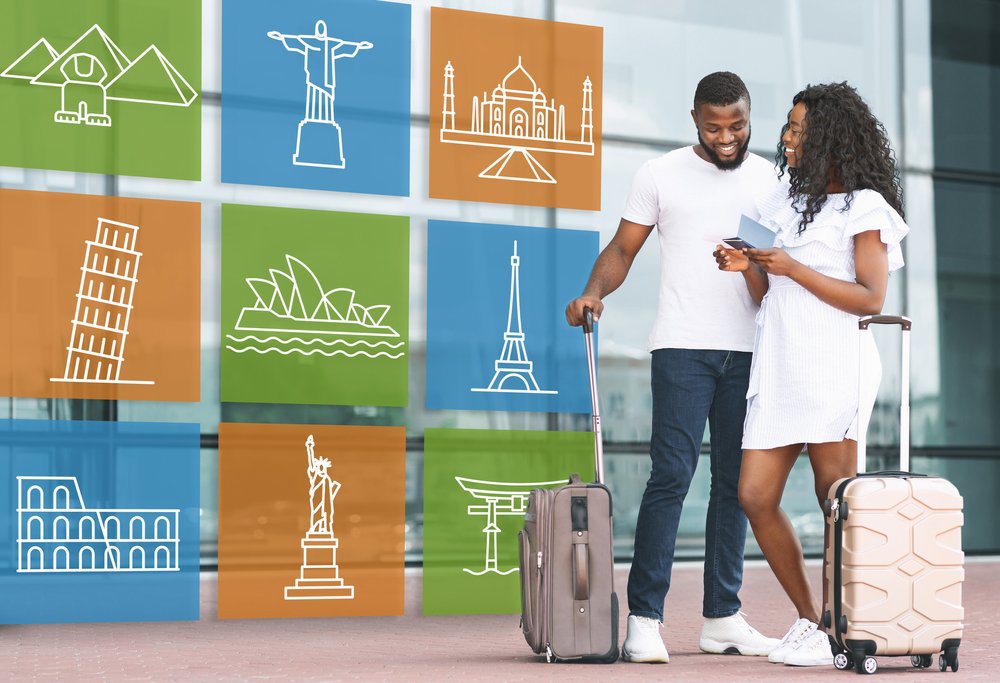What it means if you haven’t traveled to more than 4 cities by age 35

In a world where social media often showcases the jet-setting lifestyles of many, not having traveled to more than four cities by age 35 can sometimes feel like an anomaly. However, the number of cities one has visited by a certain age is not a definitive measure of a fulfilling or successful life. This article explores various factors and perspectives to consider if you find yourself in this situation, emphasizing that travel frequency does not equate to personal value, growth, or achievement.
Financial constraints
One of the primary reasons people might not travel extensively is financial limitations. Travel can be expensive, and not everyone has the disposable income to afford frequent trips. Costs include transportation, accommodation, food, and activities, which can quickly add up. Many people prioritize other financial responsibilities such as housing, education, healthcare, or supporting family members over travel.
Economic background
- Individuals from lower-income families might have fewer opportunities to travel during their formative years.
- Economic downturns or personal financial crises can also restrict travel plans.
Career priorities
- Investing in one’s career often takes precedence over travel. Professionals might choose to allocate their time and resources towards career advancement.
- Certain professions require extensive work hours or have limited vacation days, making it challenging to plan trips.
Personal preferences and priorities
Personal interests and lifestyle choices play a significant role in travel frequency. Not everyone has the desire to travel extensively, and many find contentment in other activities.
Homebodies and local explorers
- Some people prefer the comfort of their homes and enjoy local activities and communities.
- Exploring local attractions, participating in community events, and building strong local connections can be fulfilling.
Alternative experiences
- Instead of traveling to different cities, some individuals might invest time and money in hobbies, education, or experiences such as attending workshops, learning new skills, or volunteering.
Health and mobility issues
Health and mobility can significantly impact one’s ability to travel. Chronic illnesses, disabilities, or other health conditions may limit one’s capacity to undertake long journeys or explore new cities.
Physical limitations
- Mobility impairments or health conditions that require special accommodations can make travel daunting and sometimes inaccessible.
- Individuals with specific medical needs might find it challenging to be away from their trusted healthcare providers.
Mental health considerations
- Anxiety, depression, or other mental health issues can also be barriers to travel. The stress of planning and executing a trip might outweigh the perceived benefits.
Cultural and social factors
Cultural background and social environment can influence travel habits and opportunities. Different cultures have varying attitudes towards travel, and social responsibilities can also play a part.
Cultural norms
- In some cultures, travel might not be emphasized or considered a priority. The focus might be on family, community, and local traditions.
- Cultural expectations regarding gender roles and family responsibilities can also impact travel opportunities.
Social obligations
- Taking care of family members, whether children, elderly parents, or other relatives, can limit the ability to travel.
- Community roles and commitments can also restrict the time available for personal travel.
Technology and virtual travel
In today’s digital age, technology offers alternative ways to explore the world without physically traveling. Virtual travel experiences, online learning, and digital content allow people to engage with different cultures and places from their own homes.
Virtual reality and online tours
- Virtual reality (VR) technology provides immersive travel experiences, allowing users to “visit” famous landmarks and cities.
- Many museums, tourist attractions, and cultural sites offer online tours and virtual exhibits.
Digital content
- Travel blogs, vlogs, documentaries, and social media provide insights into different cities and cultures, offering a vicarious travel experience.
Conclusion
Not having traveled to more than four cities by age 35 does not define your life’s worth or success. Numerous factors, including financial constraints, personal preferences, health issues, cultural influences, and the rise of virtual travel, contribute to travel frequency. Embracing local experiences, investing in personal growth, and utilizing technology to explore the world are equally valuable. Ultimately, fulfillment and happiness come from within and are not solely determined by the number of cities visited. Embrace your unique journey, and remember that life is about the experiences and connections you make, whether at home or abroad.
This story was created using AI technology.









